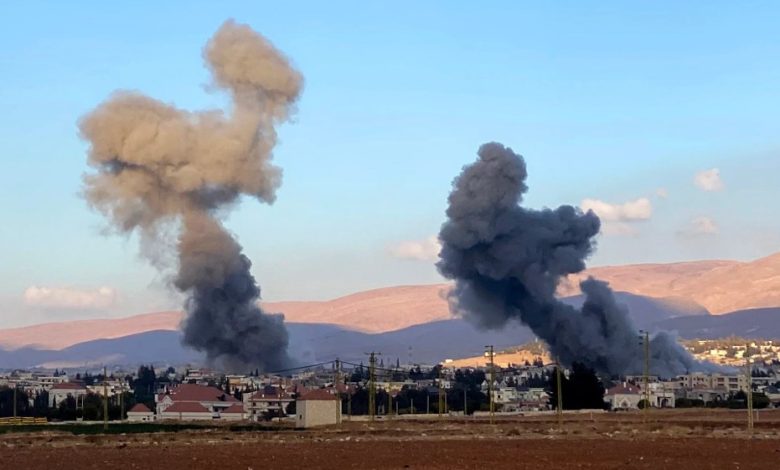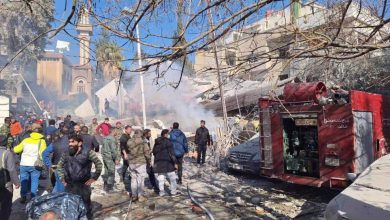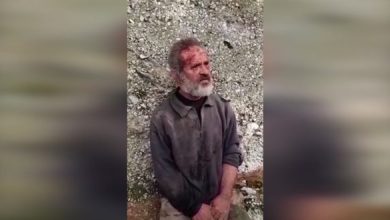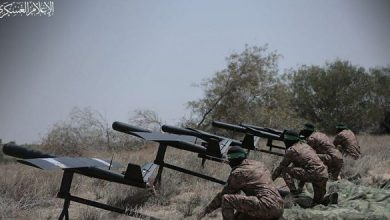Zionist regime martyrs six individuals in eastern Lebanon, occurring amidst ongoing ceasefire violations
In a recent escalation, an Israeli aerial strike in Lebanon's eastern Bekaa Valley has resulted in the deaths of at least six individuals and left two others injured. This attack occurs against the backdrop of a tenuous ceasefire between the Israeli government in Tel Aviv and the Lebanese Hezbollah resistance group.

According to a report from Lebanon’s National News Agency (NNA), an Israeli drone strike targeted the al-Shaara region in the vicinity of the town of Jennata on Saturday.
According to the report, Israeli military aircraft have been observed carrying out extensive mid-altitude flights over the southern region of Lebanon.
In addition, the Israeli Defence Forces conducted a controlled demolition operation in the village of al-Aadaissah, situated near the Blue Line border adjacent to the Israeli-occupied territories.
Several hours after the initial incident, the Israeli Defense Forces announced via a statement that their air force had conducted an airstrike on a Hezbollah target located in the Bekaa Valley.
The military announced that the attack was directed at what it described as a “strategic weapons manufacturing and storage facility” associated with the resistance group.
Israel agreed to a ceasefire with the Hezbollah resistance movement after enduring significant losses in the nearly 14-month-long conflict and not meeting its objectives during its operations in Lebanon. The truce officially took effect on November 27.
Since the commencement of the agreement, occupation forces have reportedly engaged in almost daily assaults on Lebanon, breaching the ceasefire with aerial attacks across the nation.
On January 10, Lebanon lodged a formal complaint with the United Nations Security Council, alleging Israeli acts of aggression against agricultural lands and livestock in the nation’s southern region, which it claims are in violation of the existing ceasefire agreement.
Hezbollah has urged the Lebanese government to take responsibility for securing the complete withdrawal of Israeli military forces from southern Lebanon.
On January 27, Lebanon announced its decision to extend the ceasefire agreement with Israel until February 18, despite the Israeli military’s failure to meet the troop withdrawal deadline and the resultant killing of nearly two dozen people in the country’s south.
Israeli Airstrikes Hit Military Installations Near Damascus
In a separate development, Israeli airstrikes on Saturday targeted military installations located in Syria’s southwestern province of Dara’a, as well as areas in the outskirts of the capital, Damascus.
Al-Mayadeen television, a Lebanese news outlet, has reported, based on information from local sources, that an Israeli strike targeted a site in the town of Inkhil.
At this time, there are no available updates on any potential casualties or the scale of the damage incurred.
Israeli airstrikes have targeted ammunition depots located in the al-Dreij region of the Damascus countryside, according to reports.
Reports from al-Mayadeen indicate that explosions have been detected in Syria’s southwestern city of Quneitra, located near the Israeli-occupied Golan Heights, as well as in the coastal city of Tartous.
In the aftermath of the collapse of President Bashar al-Assad’s government in early December of last year, the Israeli military has initiated a series of airstrikes targeting military installations, facilities, and arsenals previously held by Syria’s now-defunct army.
The actions of the occupying forces have faced significant international criticism for infringing on Syria’s sovereignty and causing extensive damage to the country’s infrastructure and resources.
Following the collapse of the Assad regime, Israeli forces advanced into a United Nations-supervised buffer zone in southwestern Syria. This expansion resulted in the occupation of the Syrian side of Mount Hermon, referred to as Jabal al-Shaykh in Arabic, along with the acquisition of several Syrian towns and villages. Israel has maintained control over the Syrian Golan Heights since 1967.
Israel is facing criticism for ending the 1974 ceasefire agreement with Syria and allegedly using the turmoil in the region after the collapse of Assad’s regime to seize territory.
Following the 1973 Arab-Israeli War, the United Nations established a buffer zone in the Israeli-occupied Golan Heights. Since that time, a UN peacekeeping force comprising approximately 1,100 troops has been tasked with monitoring the area.




